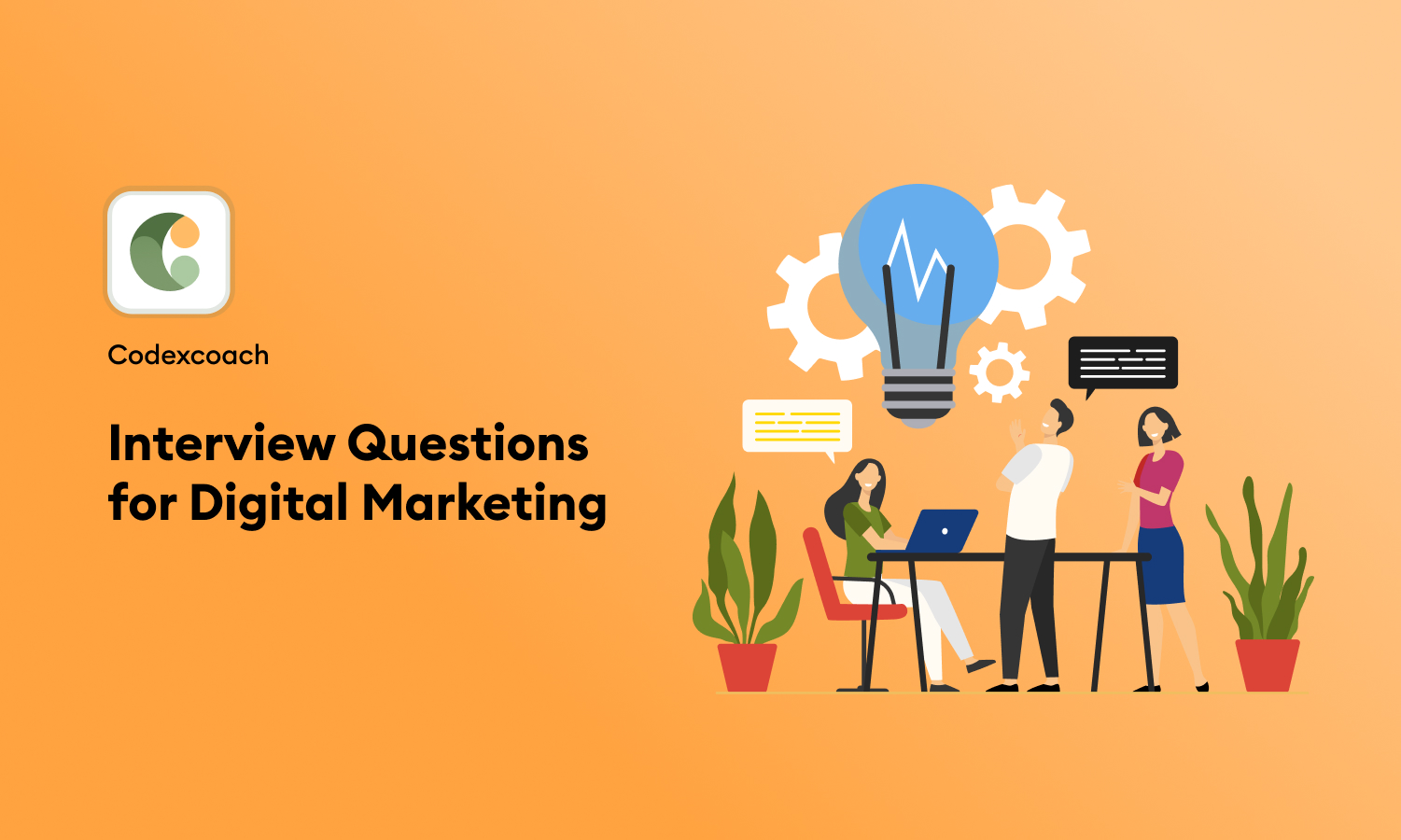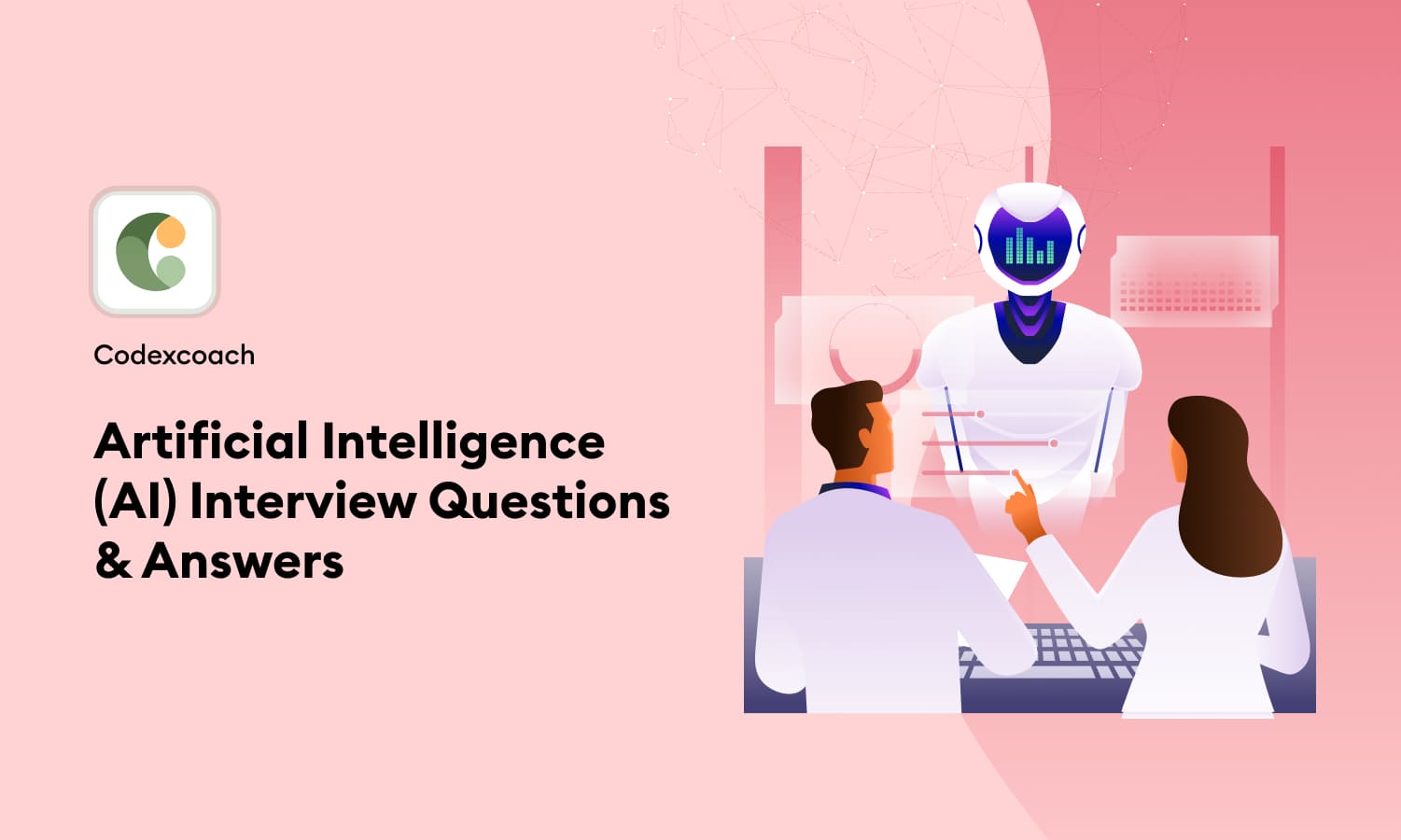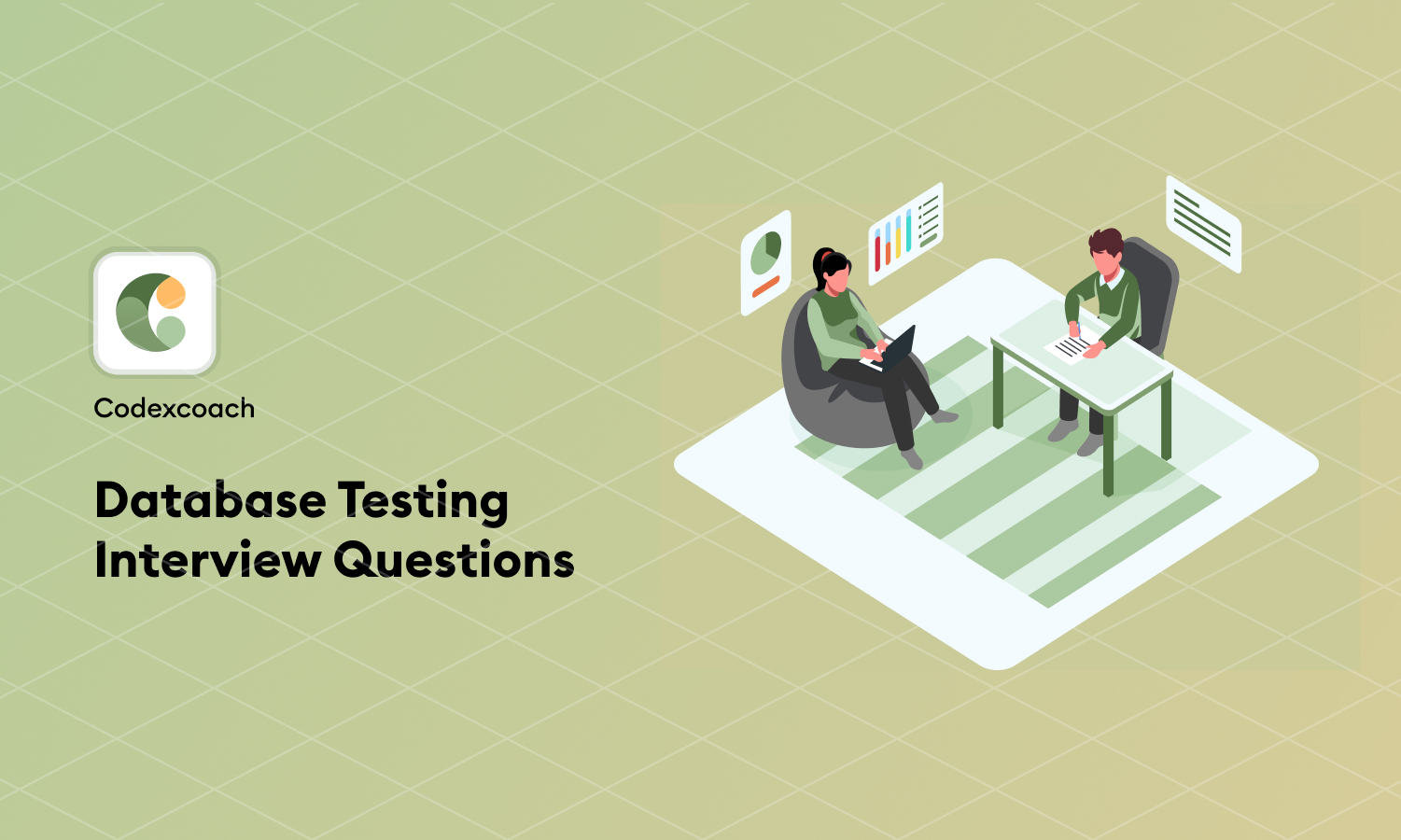1. What Is Digital Marketing?
Answer: Digital marketing is a broad term that refers to various online marketing functions. It’s about connecting with customers through digital channels such as search engines, social media, email, websites, and mobile apps. Unlike traditional marketing, it allows for real-time data analysis, enabling marketers to refine strategies quickly for better results.
2. Can You Explain SEO and Its Importance?
Answer: SEO, or Search Engine Optimization, involves optimizing websites to rank higher in search engine results, thereby increasing organic traffic. The importance of SEO lies in its ability to make your website more visible, which leads to more traffic and opportunities to convert prospects into customers. It’s a vital tool for enhancing digital presence and credibility.
Read more: What Role Does AI Play in Digital Marketing?
3. How Do You Stay Updated with Digital Marketing Trends?
Answer: Staying current in digital marketing requires a proactive approach. This includes following industry blogs (like Moz and HubSpot), attending webinars and digital marketing conferences, participating in online forums, and experimenting with new digital marketing tools and technologies.
4. What Is the Difference Between SEO and SEM?
Answer: SEO focuses on optimizing a website to improve its organic ranking in search results. SEM, or Search Engine Marketing, involves using paid strategies to increase search visibility. SEM typically refers to PPC (pay-per-click) advertising, where marketers pay for each click on their ads.
5. How Do You Measure the Success of Your Digital Campaigns?
Answer: Success in digital campaigns is measured using key performance indicators (KPIs). These can include website traffic, conversion rate, click-through rate (CTR), social media engagement, and ROI (Return on Investment). Tools like Google Analytics and social media analytics provide insights into campaign performance.
6. Explain the Role of Content Marketing.
Answer: Content marketing focuses on creating and distributing valuable, relevant, and consistent content to attract and retain a clearly-defined audience. It aims to drive profitable customer action. Good content marketing not only drives traffic but also establishes brand authority and credibility.
7. What Are Some Effective Email Marketing Strategies?
Answer: Effective email marketing strategies include segmenting your audience for personalized communication, crafting compelling subject lines, optimizing email for mobile devices, and incorporating clear calls-to-action. Regular testing and analysis of email campaigns are crucial for improving engagement and conversion rates.
8. How Important Are Social Media Platforms for Digital Marketing?
Answer: Social media platforms are crucial for digital marketing as they allow brands to connect with their audience in a more interactive and personalized way. They are effective for brand awareness, customer engagement, lead generation, and direct sales. Each platform serves different demographics and purposes, making it important to tailor strategies accordingly.
9. Can You Discuss a Successful Digital Campaign You’ve Managed?
Answer: Here, you should discuss a specific campaign, outlining the objectives, strategies used, channels leveraged, and the results achieved. Mention any challenges faced and how you overcame them. Quantifiable results, like percentage increases in traffic or sales, are particularly impactful.
10. What Is Google AdWords and How Does It Work?
Answer: Google AdWords, now known as Google Ads, is a platform for online advertising where advertisers bid to display brief advertisements, service offerings, or product listings within the Google ad network to web users. It works on a pay-per-click model, where businesses pay for each click or impression on their ads.
11. What Strategies Would You Use to Generate Leads?
Answer: Generating leads requires a multifaceted approach. Firstly, optimizing the website for conversions is crucial. This involves clear calls-to-action, an intuitive layout, and persuasive content. Utilizing targeted content marketing, SEO, SEM, and social media advertising are key. Email marketing can also be effective, especially when personalized. It’s important to continuously test and refine these strategies based on analytics and feedback.
12. How Do You Approach Mobile Marketing?
Answer: Mobile marketing should be a core part of any digital strategy. This includes ensuring all web content is mobile-friendly and fast-loading. Utilizing SMS/MMS marketing and mobile apps can be effective. Also, location-based advertising plays a significant role in reaching customers in specific geographic areas. Understanding the mobile user’s behavior and preferences is crucial for tailoring campaigns effectively.
13. Can You Explain the Importance of Analytics in Digital Marketing?
Answer: Analytics provide insights into user behavior, campaign performance, and ROI. They help identify which strategies are working and which aren’t, allowing for data-driven decisions. Analytics tools can track website traffic, engagement, conversion rates, and more, offering a comprehensive view of the effectiveness of various marketing efforts.
14. Discuss a Time When You Had to Adjust Your Strategy Based on Analytics Data.
Answer: Here, share a specific example. Describe the initial strategy, the analytics data that prompted a change, and how you adjusted your approach. Detail the results of the change. This demonstrates your ability to be agile and data-driven in your decision-making.
15. What Do You Think Will Be the Next Big Trend in Digital Marketing?
Answer: The digital marketing landscape is continuously evolving. Trends like voice search optimization, AI and machine learning in marketing automation, and the increasing importance of video content are likely to dominate. Additionally, as data privacy concerns grow, strategies focusing on privacy-friendly marketing will become crucial.
16. How Do You Manage a Marketing Budget?
Answer: Managing a marketing budget involves aligning spending with business goals, prioritizing channels and strategies based on ROI, and continuously monitoring performance. It’s important to be flexible and willing to reallocate funds to high-performing campaigns and cut back on underperforming ones.
17. What Is Your Experience with Influencer Marketing?
Answer: Influencer marketing involves partnering with social media influencers to promote products or services. My experience includes identifying influencers who align with our brand values, negotiating contracts, and collaboratively creating content that resonates with their audience. Measuring the success of these campaigns is key, looking at engagement rates, traffic, and conversion metrics.
18. How Would You Handle a Social Media Crisis?
Answer: Handling a social media crisis requires prompt action and transparency. It’s important to acknowledge the issue, take responsibility if necessary, and communicate the steps being taken to resolve it. Keeping a consistent message across all channels and monitoring the situation closely is crucial. Post-crisis, analyzing what went wrong and implementing measures to prevent future issues is key.
19. What Is Your Approach to Collaborating with Other Departments?
Answer: Collaborating effectively with other departments, like sales, IT, and customer service, is vital for a cohesive marketing strategy. It involves regular communication, understanding their challenges and goals, and aligning marketing strategies to support them. Sharing insights and data is also crucial for a unified approach.
20. How Do You Stay Motivated and Creative in Your Work?
Answer: Staying motivated in digital marketing involves continuously seeking new challenges and learning opportunities. Keeping up with industry trends, attending workshops, and networking with peers can spark creativity. I also find that setting clear goals and celebrating small wins helps maintain motivation.
21. How Do You Prioritize Your Digital Marketing Efforts?
Answer: Prioritization in digital marketing depends on business objectives, target audience needs, and resource availability. It involves evaluating the potential impact of different channels and strategies, considering customer journey stages, and aligning efforts with sales and business goals. Regularly reviewing and adjusting priorities based on performance data and market trends is essential.
22. What Role Does Customer Feedback Play in Your Digital Marketing Strategy?
Answer: Customer feedback is invaluable for refining digital marketing strategies. It offers insights into customer preferences, pain points, and experiences. This feedback can be leveraged to improve website UX, content relevance, and overall marketing messaging. Engaging with customers on social media and through surveys can provide direct and actionable feedback.
23. How Do You Ensure Your Digital Marketing Strategies Align with Brand Values?
Answer: Ensuring alignment involves a deep understanding of brand values and consistent messaging across all digital channels. Every campaign and piece of content should reflect the brand’s voice and ethos. Regular communication with branding teams and stakeholders is crucial to maintain this alignment.
24. Discuss How You Would Use Data to Drive Marketing Strategies.
Answer: Data-driven marketing involves using customer data, market trends, and analytics to inform strategies. This includes segmenting audiences based on behavior and preferences, personalizing marketing messages, and continuously testing and optimizing campaigns. Leveraging tools like Google Analytics, CRM systems, and AI-powered analytics platforms can provide the necessary insights.
25. What Is Your Approach to Omni-Channel Marketing?
Answer: Omni-channel marketing involves creating a seamless customer experience across all channels, both online and offline. This approach requires an integrated strategy where messaging, branding, and customer experience are consistent and complementary across all platforms. It’s about understanding how customers interact with the brand at various touchpoints and providing a cohesive journey throughout.
26. How Do You Keep Up with Rapid Changes in Digital Marketing Technologies?
Answer: Staying updated involves continuous learning through industry blogs, webinars, professional networks, and conferences. Experimenting with new tools and technologies as they emerge and applying them to marketing strategies is also important. Additionally, following thought leaders and participating in industry forums can provide insights into future trends.
27. Explain the Concept of Growth Hacking and Its Relevance in Digital Marketing.
Answer: Growth hacking is a marketing approach focused on quickly finding and leveraging the most effective techniques for business growth. It’s particularly relevant in digital marketing due to its focus on data-driven experimentation, viral marketing strategies, and innovative use of technology to achieve rapid growth, often with limited resources.
28. How Do You Balance Short-Term Sales Goals with Long-Term Brand Building in Digital Marketing?
Answer: Balancing short-term and long-term goals involves developing strategies that address immediate sales targets while nurturing long-term customer relationships and brand loyalty. This might include a mix of direct-response campaigns for quick wins and content marketing for brand building. It’s crucial to measure and adjust these strategies regularly to ensure they contribute to both immediate and future objectives.
29. Discuss the Role of Automation in Digital Marketing.
Answer: Automation in digital marketing enhances efficiency and effectiveness. It can be used for tasks like email marketing, social media posting, and ad campaigns. Automation tools help in personalizing content at scale, segmenting audiences, and analyzing data, allowing marketers to focus on strategy and creative aspects.
30. How Would You Integrate Traditional Marketing Practices with Digital Strategies?
Answer: Integrating traditional and digital marketing involves creating a unified strategy where each complements the other. For example, print or TV ads can be aligned with online campaigns. QR codes in traditional ads can bridge the gap to digital platforms. It’s about creating a cohesive brand story and customer experience across all channels.





